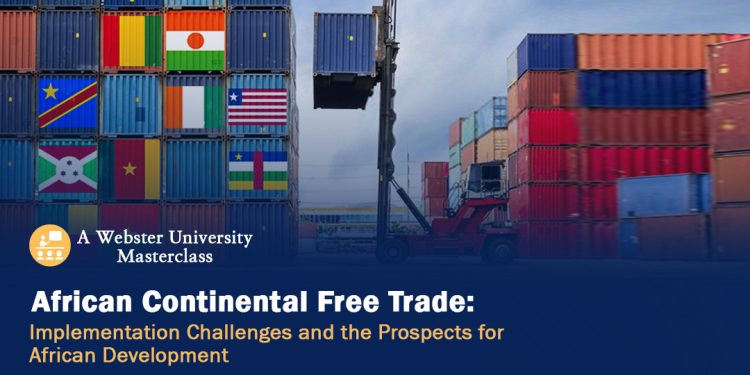Every year, the Ghana Campus of Webster University hosts three Masterclasses in-line with their graduate degree programs.
These events are free and open to the public.
Webster University Ghana’s Masterclass series is a multidisciplinary event for college students, professionals, and industry stakeholders and enthusiasts around the various topics.
The unique pseudo taster classes serve as a learning platform to develop sustainable, hands-on solutions to real-life challenges.
The Masterclasses also seek to bring together forward-looking minds and expose participants to best practices in their field of expertise, generating new ideas, knowledge and insight that will help build a vision for the future. The next is an international relations Masterclass themed “The African Continental Free Trade Agreement: Implementation Challenges and the Prospects for African Development” and will be held online on 18th November 2021 at 5:30pm.
With the world being a global village, trade is an important economic factor for the development of many economies. Trading dates back to centuries where an early form of trade- barter saw the direct exchange of goods and services for other goods and services.
As time evolved and globalization emerged, trade changed, becoming broader and more complex. The formation of trade blocs, such as the European Union (EU) and the Pacific Alliance, paved the way for policies such as free trade, constituting bilateral and multilateral trade, which greatly expanded market access and spurred economic growth.
According to the African Development Bank, in 2014 only 16% of international trade took place between African countries. The United Nations Conference on Trade and Development (UNCTAD) also reports that Intra-African exports were 16.6% of total exports in 2017, compared with 68.1% in Europe, 59.4% in Asia, 55.0% in America and 7.0% in Oceania.
The African Continental Free Trade Area is widely seen as a crucial driver for economic growth, industrialization, and sustainable development in Africa. The agreement seeks to create a single African market of more than a billion consumers with a combined GDP of U$2.5 trillion. Through its various protocols, the AfCFTA agreement addresses trade in goods (tariff liberalization schedules, non-tariff barriers, rules of origin), trade in services, competition, investment, and intellectual property. It is expected to boost intra-African agricultural trade, currently estimated to be less than 20 percent of total agricultural trade. Despite its prospects, there continue to be implementation challenges which could thwart the efforts of the agreement.
Please join Webster University Ghana for this International Relations Masterclass, where they will explore these and related issues in detail. Click here to register now.
Webster University has 9 global campuses and give college students across Africa the opportunity to earn a quality American degree– undergraduate or Master’s – at the Ghana campus in East Legon, Accra; an experience that also includes a chance to study abroad.





